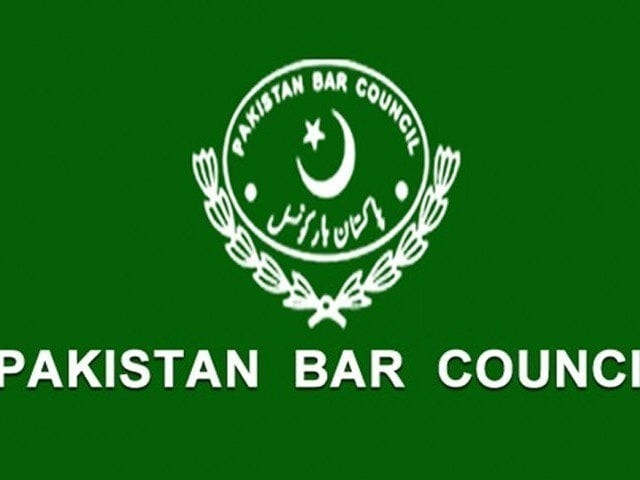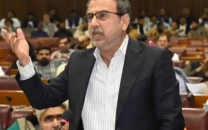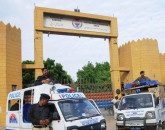PBC urges judges to maintain unity
Calls for quashing impression of conflict among judges in view of non-elevation of PHC CJ to apex court

Talking to The Express Tribune, PBC Vice Chairman Abid Saqi said, “Superior court judges must avoid any personal controversy and maintain unity to fight the battle of rule of law in the country.”
The PBC vice chairman said that despite several attempts, non-democratic forces could not weaken the judiciary but any impression about conflict among judges may fulfil their objective. “Therefore, judges should try their best to avoid any personal controversy.”
Saqi who had warned the federal government about a strong agitation in case a presidential reference was filed for the removal of Justice Seth on account of his judgment to award death sentence to former military ruler Gen (retd) Pervez Musharraf in the treason case, did not shy away from opposing the PHC chief justice’s recent act of writing a letter to the CJP against appointment of three judges in the SC during the last two years.
Saqi said that the principle of seniority did not apply while appointing an SC judge, adding that the apex court already held that “elevation of a high court judge to the SC is a fresh appointment”.
Likewise, he endorsed the Supreme Court Bar Association (SCBA) president’s view that “Sindh High Court Chief Justice Ahmed Ali M Sheikh is more senior than Justice Seth”.
Likewise, Justice Mazahar Ali Akbar Naqvi, who has recently been elevated to the SC, was appointed as an LHC judge in Feb 2010 while Justice Seth was nominated as a PHC judge in August 2011.
However, the lawyers are divided over the elevation of judges on the principle of seniority. One section of the legal community has a consistent view that seniority should not be the only yardstick and the criteria should also include competence and reputation.
The Hamid Khan Group is opposing the recent appointments to the SC as it believes that whenever elevation is being made in violation of the seniority principle, a clash among judges takes place.
PBC representative Rasheed A Rizvi, who is a senior member of the Hamid Khan Group, also believes that appointment of SC judges should be made on the principle of seniority rather than personal liking.
Rizvi wonders that the judge who convicted a dictator has not been elevated but a judge who annulled his conviction has been appointed as the new SC judge. He states that as compared to the past, differences among superior court judges have increased for different reasons.
However, Rizvi states that the role of the chief justice is always significant to end any controversy among judges.
He also proposes that every chief justice while forming larger benches in high-profile cases should include senior-most judges to avoid giving the impression that a few judges are being included in special benches because they are close to the top judge.
However, Rizvi stated that conflicts among judges always persisted in the past except during the era of former chief justice Iftikhar Muhammad Chaudhry.
It is witnessed that in former CJ Chaudhry’s tenure (March 2009 to December 2013), superior judiciary emerged as the most powerful institution in the country and there was no major internal clash among judges.
However, critics of his era say that there was no dissenting voice among judges in critical judicial matters.
Hardly a few judges issued dissenting notes in high-profile cases during that period.
Likewise, they also criticised that why competent judges who had been removed through the July 31, 2009 judgment were not reconsidered for appointment.
Soon after Chaudhry’s retirement, a rainbow superior judiciary emerged wherein every judge openly started expressing his/her view in high-profile cases. The same situation was witnessed in the 21st constitution amendment case judgment wherein every judge expressed his own view about the Constitutional issues.
Senior lawyers gave credit to ex-CJP Nasirul Mulk who had provided a pleasant atmosphere to judges to express their views in high-profile cases.
However, during the tenures of former chief justices Anwar Zaheer Jamali and Mian Saqib Nisar, a section of lawyers complained that a handful of judges were made part of benches which heard high-profile cases.
Likewise, a few judges, who usually dissent with the top judge, were sidelined and not made part of the special benches.
Former CJP Nisar also faced criticism over the formation of benches in which a few selected judges were being included to adjudicate sensitive constitutional issues.
It is also witnessed that the SC judges were divided over elevation of Justice Naqvi.
Same is reflected in Justice Qazi Faez Isa's dissenting note which he presented as a member of the Judicial Commission of Pakistan (JCP) regarding elevation of Justice Naqvi.
Justice Isa wrote in his note: “A number of illustrious brethren who are judges of the Supreme Court and have worked with him (Justice Naqvi) at the Lahore High Court have expressed negative views about him.”
However, minutes of the JCP meeting revealed that Justice Umar Ata Bandial had supported the nomination of Justice Naqvi, saying that he had worked with him (Justice Naqvi) in the LHC and found him “sharp, competent and a brilliant judge having balanced views in criminal cases”.
Justice Isa in his dissent note had endorsed parliamentary committee’s earlier concern over low elevation rate of judges to SC from smaller provinces and Islamabad Capital Territory
(ICT).
The current provincial representation of judges in the apex court is: eight are from Punjab, six from Sindh, two from Khyber-Pakhtunkhwa (K-P), one from Balochistan and none from the ICT.
The last judge appointed to the apex court from Balochistan was five-and-a-half years ago and from Sindh and K-P around two years ago.
Justice Isa in his note stated that the Constitution does not mandate appointments by province/territory, however, misgivings generated when all other provinces and the ICT were ignored for no discernible reason and chief justices and senior judges were bypassed.
He said disregarding senior judges was tantamount to expressing no- confidence in them which also undermined their commitment to the institution.


















COMMENTS
Comments are moderated and generally will be posted if they are on-topic and not abusive.
For more information, please see our Comments FAQ